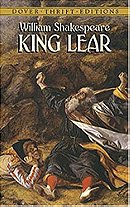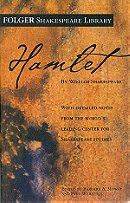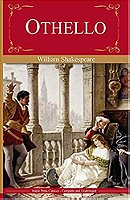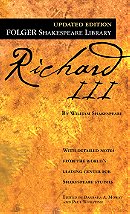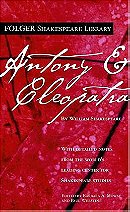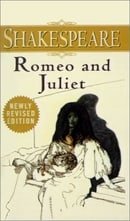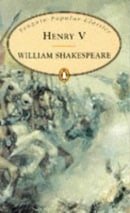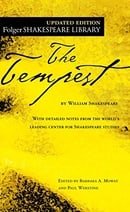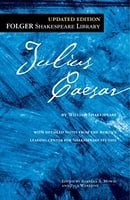My Top 10 Shakespeare Plays
Sort by:
Showing 10 items
Rating:
List Type:
Macbeth - William Shakespeare
When shall we three meet again
In thunder, lightning, or in rain?
When the hurlyburly ’s done,
When the battle ’s lost and won
(Macbeth, Act 1, Scene 1)
To-morrow, and to-morrow, and to-morrow,
Creeps in this petty pace from day to day,
To the last syllable of recorded time;
And all our yesterdays have lighted fools
The way to dusty death. Out, out, brief candle!
Life's but a walking shadow, a poor player
That struts and frets his hour upon the stage
And then is heard no more. It is a tale
Told by an idiot, full of sound and fury
Signifying nothing.
(Macbeth: Act 5, Scene 5)
In thunder, lightning, or in rain?
When the hurlyburly ’s done,
When the battle ’s lost and won
(Macbeth, Act 1, Scene 1)
To-morrow, and to-morrow, and to-morrow,
Creeps in this petty pace from day to day,
To the last syllable of recorded time;
And all our yesterdays have lighted fools
The way to dusty death. Out, out, brief candle!
Life's but a walking shadow, a poor player
That struts and frets his hour upon the stage
And then is heard no more. It is a tale
Told by an idiot, full of sound and fury
Signifying nothing.
(Macbeth: Act 5, Scene 5)
Kenji's rating:


King Lear - William Shakespeare
How sharper than a serpent's tooth it is
To have a thankless child!
(King Lear, Act 1, Scene 4)
As flies to wanton boys are we to th' gods,
They kill us for their sport.
(King Lear: Act 4, Scene 1)
To have a thankless child!
(King Lear, Act 1, Scene 4)
As flies to wanton boys are we to th' gods,
They kill us for their sport.
(King Lear: Act 4, Scene 1)
Kenji's rating:


Hamlet - William Shakespeare
To be, or not to be: that is the question:
Whether ‘tis nobler in the mind to suffer
The slings and arrows of outrageous fortune,
Or to take arms against a sea of troubles,
And by opposing end them? To die: to sleep;
No more; and by a sleep to say we end
The heart-ache and the thousand natural shocks
That flesh is heir to, ’tis a consummation
Devoutly to be wish’d. To die, to sleep;
To sleep: perchance to dream: ay, there’s the rub;
For in that sleep of death what dreams may come
When we have shuffled off this mortal coil,
Must give us pause: there’s the respect
That makes calamity of so long life;
For who would bear the whips and scorns of time,
The oppressor’s wrong, the proud man’s contumely,
The pangs of despised love, the law’s delay,
The insolence of office and the spurns
That patient merit of the unworthy takes,
When he himself might his quietus make
With a bare bodkin? who would fardels bear,
To grunt and sweat under a weary life,
But that the dread of something after death,
The undiscover’d country from whose bourn
No traveller returns, puzzles the will
And makes us rather bear those ills we have
Than fly to others that we know not of?
Thus conscience does make cowards of us all;
And thus the native hue of resolution
Is sicklied o’er with the pale cast of thought,
And enterprises of great pith and moment
With this regard their currents turn awry,
And lose the name of action. – Soft you now!
The fair Ophelia! Nymph, in thy orisons
Be all my sins remember’d.
(Hamlet, Act 3, Scene 1)
There is a willow grows aslant a brook,
That shows his hoary leaves in the glassy stream.
Therewith fantastic garlands did she make
Of crow-flowers, nettles, daisies, and long purples,
That liberal shepherds give a grosser name,
But our cold maids do dead men’s fingers call them.
There on the pendant boughs her crownet weeds
Clambering to hang, an envious sliver broke,
When down her weedy trophies and herself
Fell in the weeping brook. Her clothes spread wide
And, mermaid-like, awhile they bore her up;
Which time she chaunted snatches of old lauds,
As one incapable of her own distress,
Or like a creature native and indued
Unto that element; but long it could not be
Till that her garments, heavy with their drink,
Pull’d the poor wretch from her melodious lay
To muddy death.
(Hamlet, Act 4, Scene 7)
Whether ‘tis nobler in the mind to suffer
The slings and arrows of outrageous fortune,
Or to take arms against a sea of troubles,
And by opposing end them? To die: to sleep;
No more; and by a sleep to say we end
The heart-ache and the thousand natural shocks
That flesh is heir to, ’tis a consummation
Devoutly to be wish’d. To die, to sleep;
To sleep: perchance to dream: ay, there’s the rub;
For in that sleep of death what dreams may come
When we have shuffled off this mortal coil,
Must give us pause: there’s the respect
That makes calamity of so long life;
For who would bear the whips and scorns of time,
The oppressor’s wrong, the proud man’s contumely,
The pangs of despised love, the law’s delay,
The insolence of office and the spurns
That patient merit of the unworthy takes,
When he himself might his quietus make
With a bare bodkin? who would fardels bear,
To grunt and sweat under a weary life,
But that the dread of something after death,
The undiscover’d country from whose bourn
No traveller returns, puzzles the will
And makes us rather bear those ills we have
Than fly to others that we know not of?
Thus conscience does make cowards of us all;
And thus the native hue of resolution
Is sicklied o’er with the pale cast of thought,
And enterprises of great pith and moment
With this regard their currents turn awry,
And lose the name of action. – Soft you now!
The fair Ophelia! Nymph, in thy orisons
Be all my sins remember’d.
(Hamlet, Act 3, Scene 1)
There is a willow grows aslant a brook,
That shows his hoary leaves in the glassy stream.
Therewith fantastic garlands did she make
Of crow-flowers, nettles, daisies, and long purples,
That liberal shepherds give a grosser name,
But our cold maids do dead men’s fingers call them.
There on the pendant boughs her crownet weeds
Clambering to hang, an envious sliver broke,
When down her weedy trophies and herself
Fell in the weeping brook. Her clothes spread wide
And, mermaid-like, awhile they bore her up;
Which time she chaunted snatches of old lauds,
As one incapable of her own distress,
Or like a creature native and indued
Unto that element; but long it could not be
Till that her garments, heavy with their drink,
Pull’d the poor wretch from her melodious lay
To muddy death.
(Hamlet, Act 4, Scene 7)
Kenji's rating:


Othello - William Shakespeare
O, beware, my lord, of jealousy!
It is the green-eyed monster which doth mock
The meat it feeds on.
(Othello, Act 3, Scene 3)
It is the green-eyed monster which doth mock
The meat it feeds on.
(Othello, Act 3, Scene 3)
Kenji's rating:


Richard III - William Shakespeare
Now is the winter of our discontent
Made glorious summer by this sun of York;
And all the clouds that lour'd upon our house
In the deep bosom of the ocean buried.
Now are our brows bound with victorious wreaths;
Our bruised arms hung up for monuments;
Our stern alarums changed to merry meetings,
Our dreadful marches to delightful measures.
Grim-visaged war hath smooth'd his wrinkled front;
And now, instead of mounting barded steeds
To fright the souls of fearful adversaries,
He capers nimbly in a lady's chamber
To the lascivious pleasing of a lute.
But I, that am not shaped for sportive tricks,
Nor made to court an amorous looking-glass;
I, that am rudely stamp'd, and want love's majesty
To strut before a wanton ambling nymph;
I, that am curtail'd of this fair proportion,
Cheated of feature by dissembling nature,
Deformed, unfinish'd, sent before my time
Into this breathing world, scarce half made up,
And that so lamely and unfashionable
That dogs bark at me as I halt by them;
Why, I, in this weak piping time of peace,
Have no delight to pass away the time,
Unless to spy my shadow in the sun
And descant on mine own deformity:
And therefore, since I cannot prove a lover,
To entertain these fair well-spoken days,
I am determined to prove a villain
And hate the idle pleasures of these days.
(Richard III: Act 1, Scene 1)
O! cursed be the hand that made these holes;
Cursed the heart that had the heart to do it!
Cursed the blood that let this blood from
hence!
More direful hap betide that hated wretch,
That makes us wretched by the death of thee,
Than I can wish to adders, spiders, toads,
Or any creeping venom'd thing that lives!
If ever he have child, abortive be it,
Prodigious, and untimely brought to light,
Whose ugly and unnatural aspect
May fright the hopeful mother at the view;
And that be heir to his unhappiness!
If ever he have wife, let her be made
More miserable by the death of him
Than I am made by my young lord and thee!
(Richard III: Act 1, Scene 2)
Lord, Lord! methought, what pain it was to drown!
What dreadful noise of waters in mine ears!
What ugly sights of death within mine eyes!
Methought I saw a thousand fearful wrecks;
Ten thousand men that fishes gnaw'd upon;
Wedges of gold, great anchors, heaps of pearl,
Inestimable stones, unvalued jewels,
All scatter'd in the bottom of the sea:
Some lay in dead men's skulls; and, in those holes
Where eyes did once inhabit, there were crept,
As 'twere in scorn of eyes, reflecting gems,
Which woo'd the slimy bottom of the deep,
And mock'd the dead bones that lay scatter'd by.
(Richard III: Act 1, Scene 4)
Made glorious summer by this sun of York;
And all the clouds that lour'd upon our house
In the deep bosom of the ocean buried.
Now are our brows bound with victorious wreaths;
Our bruised arms hung up for monuments;
Our stern alarums changed to merry meetings,
Our dreadful marches to delightful measures.
Grim-visaged war hath smooth'd his wrinkled front;
And now, instead of mounting barded steeds
To fright the souls of fearful adversaries,
He capers nimbly in a lady's chamber
To the lascivious pleasing of a lute.
But I, that am not shaped for sportive tricks,
Nor made to court an amorous looking-glass;
I, that am rudely stamp'd, and want love's majesty
To strut before a wanton ambling nymph;
I, that am curtail'd of this fair proportion,
Cheated of feature by dissembling nature,
Deformed, unfinish'd, sent before my time
Into this breathing world, scarce half made up,
And that so lamely and unfashionable
That dogs bark at me as I halt by them;
Why, I, in this weak piping time of peace,
Have no delight to pass away the time,
Unless to spy my shadow in the sun
And descant on mine own deformity:
And therefore, since I cannot prove a lover,
To entertain these fair well-spoken days,
I am determined to prove a villain
And hate the idle pleasures of these days.
(Richard III: Act 1, Scene 1)
O! cursed be the hand that made these holes;
Cursed the heart that had the heart to do it!
Cursed the blood that let this blood from
hence!
More direful hap betide that hated wretch,
That makes us wretched by the death of thee,
Than I can wish to adders, spiders, toads,
Or any creeping venom'd thing that lives!
If ever he have child, abortive be it,
Prodigious, and untimely brought to light,
Whose ugly and unnatural aspect
May fright the hopeful mother at the view;
And that be heir to his unhappiness!
If ever he have wife, let her be made
More miserable by the death of him
Than I am made by my young lord and thee!
(Richard III: Act 1, Scene 2)
Lord, Lord! methought, what pain it was to drown!
What dreadful noise of waters in mine ears!
What ugly sights of death within mine eyes!
Methought I saw a thousand fearful wrecks;
Ten thousand men that fishes gnaw'd upon;
Wedges of gold, great anchors, heaps of pearl,
Inestimable stones, unvalued jewels,
All scatter'd in the bottom of the sea:
Some lay in dead men's skulls; and, in those holes
Where eyes did once inhabit, there were crept,
As 'twere in scorn of eyes, reflecting gems,
Which woo'd the slimy bottom of the deep,
And mock'd the dead bones that lay scatter'd by.
(Richard III: Act 1, Scene 4)
Kenji's rating:


Antony and Cleopatra (Folger Shakespeare Library)... - William Shakespeare
Age cannot wither her, nor custom stale
Her infinite variety: other women cloy
The appetites they feed: but she makes hungry
Where most she satisfies
(Antony and Cleopatra: Act 2, Scene 2)
Her infinite variety: other women cloy
The appetites they feed: but she makes hungry
Where most she satisfies
(Antony and Cleopatra: Act 2, Scene 2)
Kenji's rating:


The Tragedy of Romeo and Juliet (Shakespeare Series)... - Lois Burdett
But, soft! what light through yonder window breaks?
It is the east, and Juliet is the sun.
O Romeo, Romeo, wherefore art thou Romeo?
What's in a name? That which we call a rose
By any other word would smell as sweet.
(Romeo and Juliet, Act 2, Scene 2)
It is the east, and Juliet is the sun.
O Romeo, Romeo, wherefore art thou Romeo?
What's in a name? That which we call a rose
By any other word would smell as sweet.
(Romeo and Juliet, Act 2, Scene 2)
Kenji's rating:


King Henry V (Penguin Popular Classics) - William Shakespeare
Once more unto the breach, dear friends, once more;
Or close the wall up with our English dead.
In peace there’s nothing so becomes a man
As modest stillness and humility:
But when the blast of war blows in our ears,
Then imitate the action of the tiger;
Stiffen the sinews, summon up the blood,
Disguise fair nature with hard-favour’d rage;
Then lend the eye a terrible aspect;
Let pry through the portage of the head
Like the brass cannon; let the brow o’erwhelm it
As fearfully as doth a galled rock
O’erhang and jutty his confounded base,
Swill’d with the wild and wasteful ocean.
(Henry V: Act 3, Scene 1)
Or close the wall up with our English dead.
In peace there’s nothing so becomes a man
As modest stillness and humility:
But when the blast of war blows in our ears,
Then imitate the action of the tiger;
Stiffen the sinews, summon up the blood,
Disguise fair nature with hard-favour’d rage;
Then lend the eye a terrible aspect;
Let pry through the portage of the head
Like the brass cannon; let the brow o’erwhelm it
As fearfully as doth a galled rock
O’erhang and jutty his confounded base,
Swill’d with the wild and wasteful ocean.
(Henry V: Act 3, Scene 1)
Kenji's rating:


The Tempest (Folger Shakespeare Library) - William Shakespeare
Full fathom five thy father lies;
Of his bones are coral made;
Those are pearls that were his eyes;
Nothing of him that does fade,
But doth suffer a sea-change
Into something rich and strange.
Sea-nymphs hourly ring his knell:
Ding-dong,
Hark! Now I hear them – Ding-dong, bell.
(Ariel’s Song, The Tempest, Act 1, Scene 2)
Our revels now are ended. These our actors,
As I foretold you, were all spirits, and
Are melted into air, into thin air:
And like the baseless fabric of this vision,
The cloud-capp’d tow’rs, the gorgeous palaces,
The solemn temples, the great globe itself,
Yea, all which it inherit, shall dissolve,
And, like this insubstantial pageant faded,
Leave not a rack behind. We are such stuff
As dreams are made on; and our little life
Is rounded with a sleep.
(The Tempest, Act 4, Scene 1)
Of his bones are coral made;
Those are pearls that were his eyes;
Nothing of him that does fade,
But doth suffer a sea-change
Into something rich and strange.
Sea-nymphs hourly ring his knell:
Ding-dong,
Hark! Now I hear them – Ding-dong, bell.
(Ariel’s Song, The Tempest, Act 1, Scene 2)
Our revels now are ended. These our actors,
As I foretold you, were all spirits, and
Are melted into air, into thin air:
And like the baseless fabric of this vision,
The cloud-capp’d tow’rs, the gorgeous palaces,
The solemn temples, the great globe itself,
Yea, all which it inherit, shall dissolve,
And, like this insubstantial pageant faded,
Leave not a rack behind. We are such stuff
As dreams are made on; and our little life
Is rounded with a sleep.
(The Tempest, Act 4, Scene 1)
Kenji's rating:


Julius Caesar (The New Folger Library Shakespeare)... - William Shakespeare
Beware the ides of March.
(Julius Caesar, Act 1, Scene 2)
Friends, Romans, countrymen, lend me your ears;
I come to bury Caesar, not to praise him.
The evil that men do lives after them;
The good is oft interred with their bones;
So let it be with Caesar. The noble Brutus
Hath told you Caesar was ambitious:
If it were so, it was a grievous fault,
And grievously hath Caesar answer'd it.
Here, under leave of Brutus and the rest -
For Brutus is an honourable man;
So are they all, all honourable men -
Come I to speak in Caesar's funeral.
He was my friend, faithful and just to me:
But Brutus says he was ambitious;
And Brutus is an honourable man.
He hath brought many captives home to Rome
Whose ransoms did the general coffers fill:
Did this in Caesar seem ambitious?
When that the poor have cried, Caesar hath wept:
Ambition should be made of sterner stuff:
Yet Brutus says he was ambitious;
And Brutus is an honourable man.
You all did see that on the Lupercal
I thrice presented him a kingly crown,
Which he did thrice refuse: was this ambition?
Yet Brutus says he was ambitious;
And, sure, he is an honourable man.
I speak not to disprove what Brutus spoke,
But here I am to speak what I do know.
You all did love him once, not without cause:
What cause withholds you then, to mourn for him?
O judgment! thou art fled to brutish beasts,
And men have lost their reason. Bear with me;
My heart is in the coffin there with Caesar,
And I must pause till it come back to me.
(Julius Caesar, Act 3, Scene 2)
(Julius Caesar, Act 1, Scene 2)
Friends, Romans, countrymen, lend me your ears;
I come to bury Caesar, not to praise him.
The evil that men do lives after them;
The good is oft interred with their bones;
So let it be with Caesar. The noble Brutus
Hath told you Caesar was ambitious:
If it were so, it was a grievous fault,
And grievously hath Caesar answer'd it.
Here, under leave of Brutus and the rest -
For Brutus is an honourable man;
So are they all, all honourable men -
Come I to speak in Caesar's funeral.
He was my friend, faithful and just to me:
But Brutus says he was ambitious;
And Brutus is an honourable man.
He hath brought many captives home to Rome
Whose ransoms did the general coffers fill:
Did this in Caesar seem ambitious?
When that the poor have cried, Caesar hath wept:
Ambition should be made of sterner stuff:
Yet Brutus says he was ambitious;
And Brutus is an honourable man.
You all did see that on the Lupercal
I thrice presented him a kingly crown,
Which he did thrice refuse: was this ambition?
Yet Brutus says he was ambitious;
And, sure, he is an honourable man.
I speak not to disprove what Brutus spoke,
But here I am to speak what I do know.
You all did love him once, not without cause:
What cause withholds you then, to mourn for him?
O judgment! thou art fled to brutish beasts,
And men have lost their reason. Bear with me;
My heart is in the coffin there with Caesar,
And I must pause till it come back to me.
(Julius Caesar, Act 3, Scene 2)
Kenji's rating:


Added to
Related lists
Yet Another Listal Member's Top 50 Fave Movies
50 item list by The Mighty Celestial
29 votes 2 comments
2 comments
50 item list by The Mighty Celestial
29 votes
 2 comments
2 comments
View more top voted lists
 Login
Login
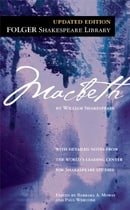
 66
66
 7.6
7.6
 0
0
